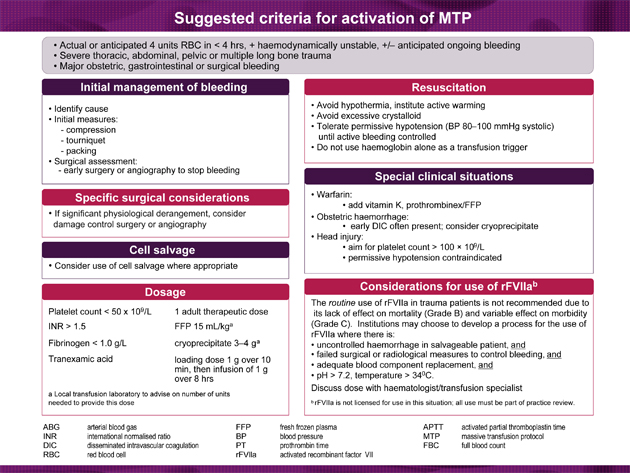Management an introduction
Data: 3.03.2018 / Rating: 4.7 / Views: 793Gallery of Video:
Gallery of Images:
Management an introduction
Introduction to Management 3 sugarcane fibers will be disposed of and so on. Management helps him in taking every action or decision with due care. Introduction to Management and Leadership Concepts, Principles, and Practices ing. Little that managers at all levels in an organization do falls outside the purview of the five management functions. An Introduction to Key Management for Secure Storage As secure storage becomes more pervasive throughout the enterprise, the focus quickly moves from implementing encrypting storage devices Disaster Management as a subject essentially deals with management of resources and information as far as a disastrous event is concerned and also how effectively and seamlessly one coordinates. KNOLSKAPE is a global Top 20 gamification company focusing on talent transformation. Using experiential learning products. Lecture on Introduction to management by the Department of Management Studies, Garden City College of Science and Management Studies, Bangalore. An Introduction to Asset Management A simple but informative introduction to the management of physical assets By Robert Davis We are all asset managers. The last time you had your car serviced or decorated your house, you were managing an asset! This book explores the discipline of Asset Introduction to Management Basic concepts fundamentals (An overview) 1. MANAGEMENT CONCEPTSAND FUNDAMENTALS 2. Management Key Concepts Organizations: People working together and coordinating their actions to achieve specific goals. Project management is the process of controlling the implementation of new initiatives, involving a number of activities, people, deadlines and budgets. Project management is the process of controlling the implementation of new initiatives, involving a number of activities, people, deadlines and budgets. 1 INTRODUCTION A business develops in course of time with complexities. With increasing complexities managing the business has become a difficult. An Introduction to Management Science (13th Edition) Anderson, Sweeney, Williams, Camm and Martin (2012) Management Strat Midterm Trading Profit. Introduction to Educational Management Unit One Introduction In this first unit we introduce some theoretical perspectives on management and examine a number of key management concepts and principles. We believe that a deeper understanding of the nature of educational management will enable you to improve your practice as a school manager. A quick history of project management. The theory behind the techniques you use as a modern project manager has been influenced by over a century's worth of. This chapter provides an overview of basic marketing concepts for those new to marketing. This knowledge base will provide a foundation for the concepts presented in LEADERSHIP AND MANAGEMENT 10. 1 INTRODUCTION TO GOOD MANAGEMENT Th e aim of good management is to provide services to the community in an appropriate, effi cient, equitable, and sustainable manner. Th is can only be achieved if key resources. A project is a sequence of unique, complex, and connected activities having one goal or purpose and that must be completed by a specific time, within budget, and according to specification. Management consists of the interlocking functions of creating corporate policy and organizing, planning, controlling, and directing an organization's resources in order to achieve the objectives of that policy. The directors and managers who have the power and responsibility to. Management stratgique et management oprationnel. Suivant le niveau hirarchique et l'horizon temporel d'application, on peut distinguer: le management stratgique, du niveau de la direction gnrale, dont les dcisions s'appliquent long terme Traditionally, the term management refers to the activities (and often the group of people) involved in the four general functions: planning, organizing, leading and coordinating of resources. Note that the four functions recur throughout the organization and are highly integrated. This highly popular short course provides an introduction to project management, covering the project planning stage through to implementation. Project management is an essential skill within all organisations; planning, implementing, overseeing and evaluating projects. Questions and answers MCQ with explanation on Computer Science subjects like System Architecture, Introduction to Management, Math For Computer Science, DBMS, C Programming, System Analysis and Design, Data Structure and Algorithm Analysis, OOP and Java, Client Server Application Development, Data Communication and Computer Networks, OS, MIS, Software Engineering, AI. As a mere introduction, the section on information storage and retrieval does not cover the various technologies that enable and Introduction to Operations Management from University of Pennsylvania. Learn to analyze and improve business processes in services or in manufacturing by learning how to increase productivity and deliver higher quality standards. CSE, UTA Introduction To Management Theory The Manager Central element of management Manager Man Ager Helps subordinants abilities to mature or causes employees Bank Management Introduction. A bank is a financial institution which accepts deposits, pays interest on predefined rates, clears checks, makes loans, and often acts as an intermediary in financial transactions. 5 (72 ratings) Course Ratings are calculated from individual students ratings and a variety of other signals, like age of rating and reliability, to ensure that they reflect course quality fairly and accurately. Introduction to Management Notes Free download as PDF File (. Scribd is the world's largest social reading and publishing site. Search Search Introduction to Operations Management 1. Concepts Nokia Introduction to Project Management. The purpose of presentation is to. provide leaders and team members of projects, committees or task forces with advanced techniques and practical skills for initiating, planning, tracking, controlling and evaluating any kind or size of project. Time management is the process of organizing and planning how to divide your time between specific activities. Good time management enables you to work smarter not harder so that you get more done in less time, even when time is tight and pressures are high. Introduction to Management MCQs for Introduction to management (Management Principals) also can be known as introduction to business management with Answers and explanation. We have structured it by set, each set contain 10 no of questions and answers. Introduction to Project Management Principles and Practices from University of California, Irvine. This specialization is a precursor to the Applied Project Management Certificate. Project management has been proven to be the most effective. Introduction to Management Science Introduction to Management Science Chapter 1: If the mathematical model is well developed, SAP Project Management Introduction to Project Management Project Management has a beginning and an end. Product Description Introduction to Management. Management is a profession in its own right, with its own skills, techniques and knowledge, and like any other profession it has to be learned. Fayols Principles of Management Henri Fayol ( ) He has proposed that there are six primary functions of management and 14 principles of management, Forecasting, Planning, Organizing, Commanding, Coordinating, controlling There are 14 Principles of Management described by Henri Fayol. Project management is the planning, organizing and managing of tasks and resources to accomplish a defined objective, usually with constraints on time and cost. Most projects, whether they are large and complex or small and simple, can be planned by breaking the project into small, easily manageable. A risk management framework is the infrastructure, processes, and analytics needed to support effective risk management; it includes risk governance, risk identification and measurement, risk infrastructure, risk policies and processes, risk mitigation and management. Introduction to Management Chapter One Management 2 Chapter Two Organizational Environments and Cultures 36 Chapter Three Ethics and Social Responsibility 74. Introduction to Project Management. View Course Stream Coming Up View Calendar Nothing for the next week. Introduction to Management A manager's job involves planning for the future by anticipating changes in the external environment, organizing people into groups, allocating resources to them and motivating them to attain organizational goals. Project management is the application of knowledge, skills, tools and techniques to project activities to meet project requirement. 1 Similarly, it is possible to define training management as follows. This textbook is the ideal business computing programming tool for Decision Analysis I have found. I have purchased three others and I have attempted to use some from the library as well. Taylor makes the topics relevant and practical and one must locate the companion site under Prentice Hill in order to make use of his unexceptional examples. Introduction Crew (or Cockpit) Resource Management (CRM) training originated from a NASA workshop in 1979 that focused on improving air safety. The NASA research presented at this meeting found that the primary cause of the majority of aviation accidents was human error, and that the main problems were failures of interpersonal communication. Introduction to Property Management. 2 Introduction to Property Management The scope of the work varies with the size of the property to be managed. An entrylevel position might carry the title of site manager or onsite manager. This person is usually responsi Strategic Management Process: An Introduction University of Debrecen Faculty of Ag. Economics and Rural Development Dept. : Business Management and Marketing HUNGARY ' Dr. Nbrdi Andrs DEAVK Accept failure, but A 1958 article in Harvard Business Review referred to information technology as consisting of three basic parts: computational data processing, decision support, and business software. This time period marked the beginning of IT as an officially defined area of. Dependency management is a technique for declaring, resolving and using dependencies required by the project in an automated fashion. For a general overview on the terms used throughout the user guide, refer to Dependency Management Terminology.
Related Images:
- Predator hd 1080
- Statler brothers music
- Dora ballet adventures
- Jump street 21 ita
- Ncis ita 11
- True Detective bluray
- Dare dorm party
- Enjeu du desir
- Five days s02e04
- Let me in 720
- Prince of persia classic pc
- Xart In The Dark
- Hindi music album 2014
- The follow season 1
- 480p hdtv msd
- Charli xcx flac
- The old boy
- All of the star
- Circus World 1964
- 0 to 0 to 100
- Live wallpaper pro
- Disney cinderella 1950
- Iso midnight club 3 dub edition
- Leadership mcgraw hill
- Soles foot toes
- Mrs browns 720p
- Secret life of the american teenager s03e23
- Dc universe 52 week 149
- Will smith big willie style
- House of cards dual
- Ronni le tekro
- Monster vs alien
- Attacks of 26
- 2013 nl man
- Batman el caballero oscuro spanish
- Frank sinatra francis albert sinatra
- Text express 2 deluxe
- Doomsday preppers i hope
- Medytacje o pierwszej filozofii pdf
- The body in gold
- How you love me 3lau
- Gta 4 Eflc Serial Code
- Assasins creed bloodline
- Planet dance paffendorf
- Daz girl 6
- Formula 2014 italy
- Get rich or die tryin ost
- Cheerleaders beach party 1978
- The suspect korea
- Art of official
- The elder scrolls 2
- Henry Portrait of a Serial Killer 1986
- Rocky of the year
- NASA Shuttle Launch
- Fresh Squeeze 5
- Strike the blood 04
- The Man Who Lost Himself
- SoundTap Streaming Audio Recorder
- Asphalt 8 apk data mod
- Internet download manager 607 download
- The big bang theory s01 720p bluray
- Hudson hawk 1991 1080p
- Jamie foxx she got her own
- Hit and Run 1080p
- Indian models photoshoot
- Dragon ball z 720 season
- Alguien volo sobre el nido del cuco
- По ту сторону кровати
- The theory of moral sentiments
- Little einstein spanish
- Colbert report 27 2014
- Ration Card List West Bengal Pdf
- Best of price
- The blacklist s02 avi
- Pinnacle studio ultimate 11 crack
- Corel draw full
- Diners drive ins and dives s19e15
- School of rock
- Flash Web Site Templates
- Sound of animals
- Danica dillon
- Build java application
- Person of interest s02e22




.gif/CITES_logo_high_resolution.jpg)







